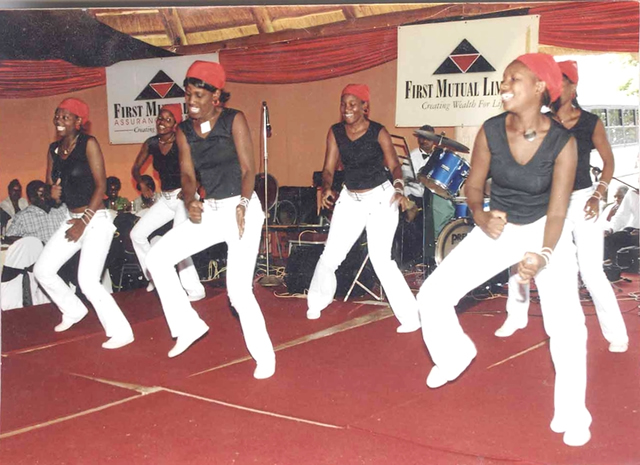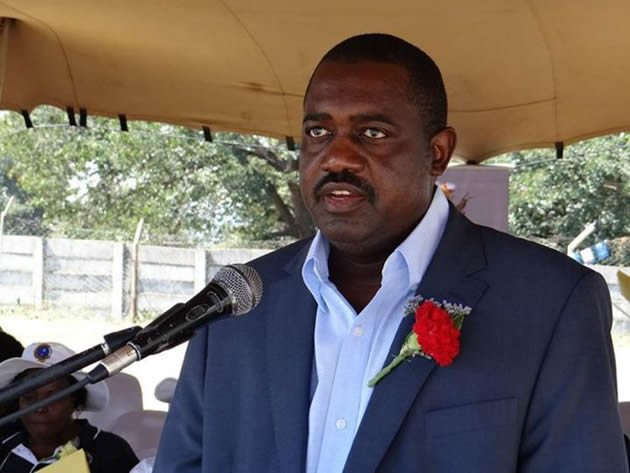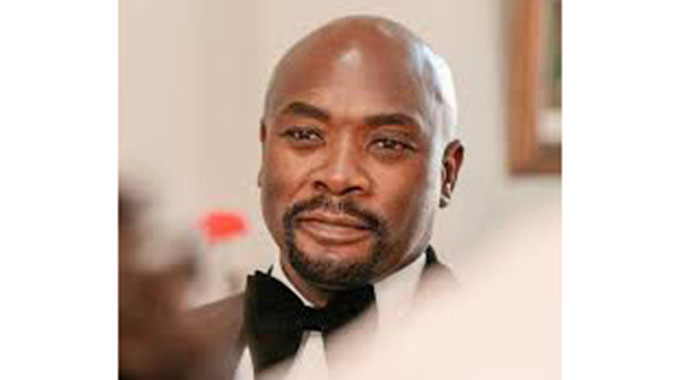Mambokadzi resurfaces in theatre

Godwin Muzari : Memory Lane
The group was a brainchild of multi-talented artist Enisia Mashusha, who had formerly worked with Amavithikazi, and was under professional management from Tracey Maruma.Since the Bindura event, Mambokadzi became a household name and their shows were always full. Established musicians jostled to have them as supporting acts and they shared the stage with Oliver Mtukudzi, Alick Macheso, Tongai Moyo, Suluman Chimbetu and Nicholas Zakaria among others
In September 2005, Bindura hosted the Mzee Bira music gala. That was the time when national music galas were rotating around provinces, taking mega entertainment to many parts of the country.
It was an era when top and upcoming musicians would converge in various towns and cities to perform before massive crowds.
The galas were held in places like Beitbridge, Gwanda, Gweru, Mutare, Bulawayo, Victoria Falls, Mt Darwin and Chipinge among others under banners like Umdala Wethu, Heroes Splush, Unity Gala, Uhuru, Mzee Bira and 21st February Movement.
The Bindura Mzee Bira was special for music fans and artistes because it was held a few weeks after the death of Dendera maestro Simon “Chopper” Chimbetu.
Chopper had been one of the musicians that consistently performed at such galas. He had last performed at the preceding Umdala Wethu gala that was held in Beitbridge in July of that year.
He had missed Heroes Splush of the same year due to illness and died on August 14. The Bindura gala came barely a month after his death.
At his last gala performance in Beitbridge, Chopper had introduced his son Suluman on stage and it became apparent after his death that the young man would be heir to his music.
But Sulu was still green in the trade and he had to work under his uncle Allan when he joined his father’s Orchestra Dendera Kings.
So, all attention was on the band at the Bindura event that was being beamed live on television. People at the gala and across the country waited for the band’s slot with anticipation and sympathy.
Sulu came on stage clad in his father’s long leather jacket and his uncle was by his side. When they did the song “Ndarangarira Gamba” some fans wept.
The performance was indeed the major highlight of the event, but something else exciting happened on the same night.
The following morning people were mainly discussing two topical issues about the gala; Orchestra Dendera Kings performance and a certain group of female dancers clad in all-white that made a surprise appearance on stage and literally shocked other performers and viewers.
The female dancers took to the stage and danced to various sungura hits in unique styles.
It was uncommon for female dancers to get down to sungura beats and the group surprised many with their outstanding performance that outclassed even seasoned performers of the night.
Fans at the gala kept asking for their return on stage and viewers at home were equally enthralled.
That was the breakthrough moment for dance ensemble, Mambokadzi – a group that went on to shake the industry for the next five years, sharing the stage with all big artistes in the country and changing the face of the dance sector.
The group was a brainchild of multi-talented artist Enisia Mashusha, who had formerly worked with Amavithikazi, and was under professional management from Tracey Maruma.
Since the Bindura event, Mambokadzi became a household name and their shows were always full. Established musicians jostled to have them as supporting acts and they shared the stage with Oliver Mtukudzi, Alick Macheso, Tongai Moyo, Suluman Chimbetu and Nicholas Zakaria among others.
The group toured South Africa, Mozambique and Botswana with the musicians and on their own, making history as the first all-female sungura dance group to achieve such a feat.
Mambokadzi won the hearts of many followers and even got slots to perform at corporate functions because of their decent dances and dressing that sharply differed from their competitors’ style.
Most female dance groups competed to lure fans with skimpy costumes and raunchy dances, but Mambokadzi maintained decency at all performances.
“Idya Banana” hitmaker Jospeh Garakara engaged the group for the video of the song and went on to win the Outstanding Video award at National Arts Merit Awards (NAMA).
Mambokadzi was also nominated for three NAMA accolades in 2007 in categories of Best Video (for their own production ‘Ndotamba’), Best Dance Group and People’s Choice award.
The group folded in 2010 when the sector became oversubscribed, but it has resurfaced pursuing a different genre. The group has now ventured into theatre and will be launching its debut production titled “Mama Africa” next week.
The musical play will première at Zimbabwe Hall in Highfield on March 31.
Mashusha is happy to take the group into a new territory, but she cannot forget the heydays when Mambokadzi shook the industry.
Yesterday, she went down “Memory Lane” and chronicled the rise and success of Mambokadzi and her new vision in theatre.
“I have always been in theatre but I just led a group that specialised in dance. I did a course in music, dance, acting and arts management at Amakhosi Culture Centre in Bulawayo and I have had roles in film and theatre productions.
“But my best moments were with Mambokadzi that made massive impact in the arts. I am proud to have founded such a successful group although fortunes in the dance industry did not allow us to continue on that path. The industry became congested and dance groups became wild. We decided to stop dancing in 2010 after releasing our debut music album ‘Idanger’,” said Mashusha.
She said the other challenge was that most dancers in the group got married and their husbands did not allow them to continue with the art.
Mambokadzi changed dancers several times but remained on top of the stage game.
“I formed Mambokadzi in 2005, about a month before we performed at Mzee Bira in Bindura and we had our first performance at a pageant at University of Zimbabwe. I auditioned for dancers at Magamba Hall in Warren Park and came up with the best six. It was indeed a talented team and we went beyond our expectations in the field.
“We had a tight schedule when we became popular and would sometimes rest just one day per week. Most of our followers were men and we had a serious challenge of misconception because most of them thought dancers are of loose morals.
“We had a haunting incident in Kariba when our girls were arrested and detained overnight because of violence that erupted when one man sexually harassed one of the dancers. The dancer tried to defend herself and commotion ensued. The police accused our girls of causing commotion but the offender was eventually brought to book.”
Mashusha says such abuse of women has always worried her, which inspired her to do her first production with Mambokadzi theatre based on challenges that women face.
She hopes her theatre group will go places and make an impact just like Mambokadzi dancers.
However, only one member of the current group, Spiwe Guwera, was part of the previous Mambokadzi.
Other members of Mambokadzi Theatre are Amanda Ndlovu, Nokuthaba OkaMadlamini, Pretty Sithole, Jesimine Moyo and Melody Matendere.
Their play “Mama Africa” was written by Mandla Moyo while Mashusha is the director and producer.
It tackles issues like abuse of girls, domestic violence, rape, sexual abuse and many other challenges that women face daily.
Mashusha hopes to take the play for various tours and bring back Mambokadzi popularity through another arts genre.
Feedback: [email protected]











Comments